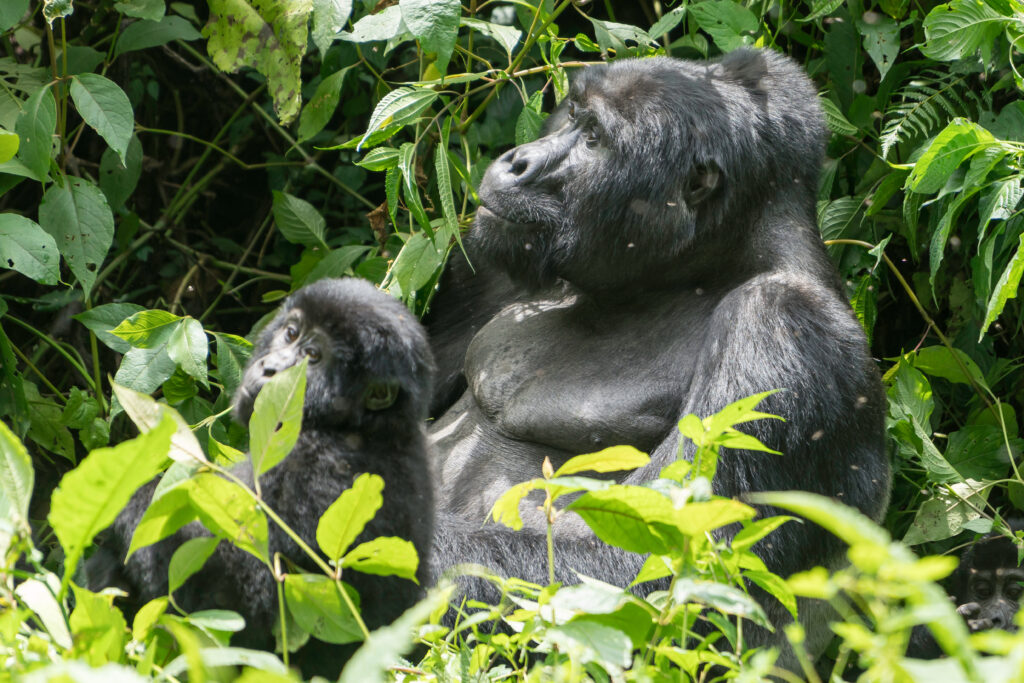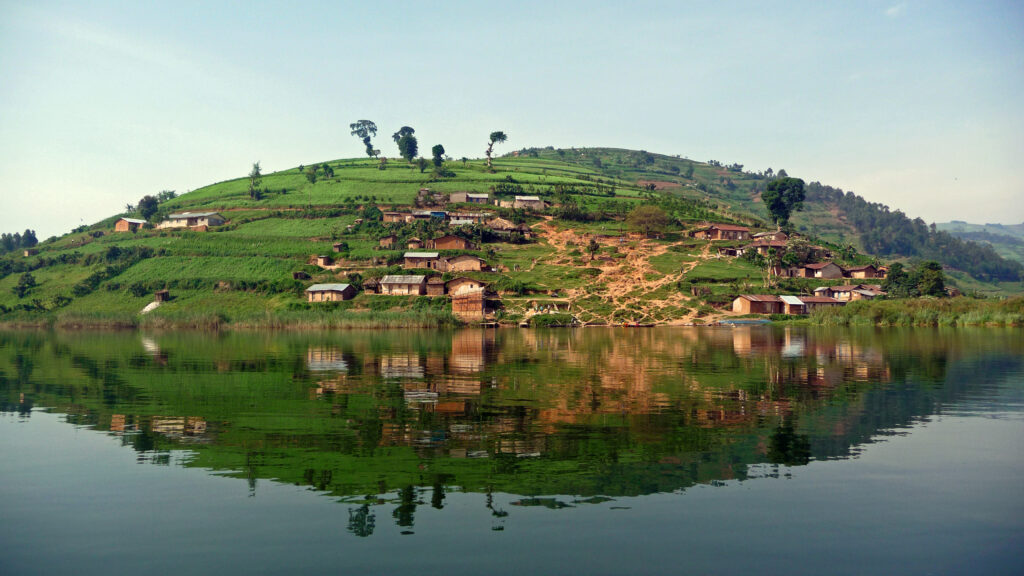This website uses cookies so that we can provide you with the best user experience possible. Cookie information is stored in your browser and performs functions such as recognising you when you return to our website and helping our team to understand which sections of the website you find most interesting and useful.
Cost of travel in Uganda
Uganda is a vibrant country home to stunning national parks, beautiful lakes and soaring mountains. But how much does a holiday to Uganda cost? The good news is that everyday expenses, such as food and transportation, are relatively inexpensive. The bad news is that excursions such as gorilla trekking and game drives can have a pretty hefty price tag. The cost of your holiday ultimately depends on how you want to spend your time. Are you happy exploring the towns, riverside villages and trekking in the mountains? Or is the focus of your trip to see some incredible wildlife, hiking in Bwindi Impenetrable National Park? Uganda can be done in a variety of ways.
So, how much does the average holiday to Uganda cost? For low-budget travellers, we suggest taking up to $100 per day (approximately 366,438 USh). This should cover dorm room or basic accommodation, street food and small excursions such as museum visits. For a mid-range budget, allocate around $100-200 (366,438-732,876 USh) per day, which will cover meals in decent local restaurants, mid-range hotel accommodation, and a few big excursions, such as chimpanzee trekking or national park entry. And if you would like anything extra, such as gorilla trekking or private car hire, you will need to budget upwards of $250 (916,095 USh) per day.
The currency in Uganda is the Ugandan Shilling (USh).
Food & Drink
While certain activities such as gorilla trekking are a high cost, you’ll be pleased to know that food will be one of your lowest. The average daily spend on food in Uganda is $5.65 (20,712 USh), but if you stick to eating at local diners and snacking on delicious African street food, you can half that cost. A three-course dinner at a mid-range restaurant will cost you around $10-20 (36,643-73,287 USh). A local beer costs around $1.50-2 (5,496-7,328 USh) and a 0.5L bottle of water will cost you around $0.34 (1,245 Ush).
Transport
The average daily spend on public transport is around $2 (7,500 USh). If you like the freedom of being on your own schedule, hiring an SUV for a day will cost about $150 (549,657 USh). For short journeys around a town or city, a minibus-taxi or a boda boda will cost just a few dollars for a 10-15 minute ride. A longer bus journey between cities will cost you around $10-15 (36,643-54,965 USh).
Admission Fees
Chances are, admission fees will be your biggest expense. For example, chimpanzee tracking will cost around $150 (549,657 USh), but gorilla trekking will set you back a whopping $600 (2,198,628 USh). National park entrance fees usually cost around $20-40 (73,287-146,575 USh), and white-water rafting down the Nile will set you back around $125 for a round trip from Kampala. As for game drives, the average spend is around $200-300 (732,876-1,099,314 USh) per day, including the vehicle, guide and entrance fees. This cost can, of course, be split between a few people if you’re travelling in a group.


Tipping & costs in Uganda
Tipping isn’t generally expected in Uganda, but as wages here are very low in comparison to Western standards, a tip is always appreciated. Tip whatever you feel comfortable. Remember, adding a few extra shillings to your bill can go a long way.
Restaurants
Waiters in Uganda don’t generally expect a tip, as it is not customary in their culture. That said, a little extra goes a long way, so a 1000-1500 USh tip will always be well-received.
Guides
We always advise our passengers to leave a tip for your guides, no matter whereabouts in the world you are travelling. Their wages predominantly come from their tips, so adding on a 5,000-10,000 USh tip is always appreciated.
Transport
The cost of transportation will always be arranged beforehand, so there is no need to tip. Although, if you hire a driver for the day and they were particularly helpful, feel free to offer a tip for excellent service.
Can you haggle in Uganda?
Like many other countries in Africa, negotiating a price for your purchases is part of the Ugandan way to shop. Almost every item you find on a market stall has no fixed price. Sellers expect you to bargain with them, so you end up with a fair agreement between the two of you. Some will even hike up their prices so that they can be bartered down. The rule is, if you’re at a market, haggle away! If you’re in a shop, the price will most likely be fixed.
Featured Tours
We are passionate adventure travelers who want to share the world and our travel experiences with everyone…
